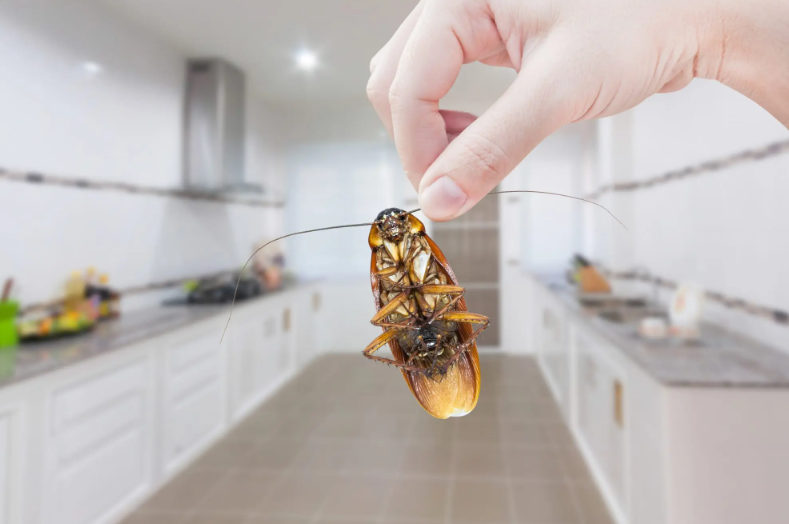Dealing with pests can be a persistent nuisance in our homes, whether it’s in Bangladesh or specifically in the bustling city of Dhaka. Fortunately, there are various methods to tackle this issue, ranging from professional pest control services in Bangladesh to DIY approaches.
In this article, we’ll delve into the world of DIY pest control, exploring effective methods, natural remedies, homemade pest control sprays, the chemicals used, benefits, and common mistakes to avoid.
What Is The Best Method For Pest Control?
When it comes to pest control, there isn’t a one-size-fits-all solution. The best method depends on the type of pests you’re dealing with and the severity of the infestation. Some common DIY pest control methods include traps, baits, repellents, and insecticides.
Traps: Traps are effective for capturing rodents and insects like flies. Mousetraps, flypaper, and glue traps are readily available and can be used strategically around your home.
Baits: Baits are used to attract and poison pests. They are particularly useful for dealing with ants and cockroaches. You can buy commercial baits or make your own with sugar and boric acid.
Repellents: Repellents are substances that deter pests from entering your home. These can include essential oils like peppermint, citronella candles, or even a simple mixture of water and dish soap to deter aphids.
Insecticides: Insecticides are chemical compounds designed to kill pests. They come in various forms, including sprays, powders, and granules. It’s essential to follow the instructions carefully when using insecticides and to keep them out of reach of children and pets.
What Is A Natural Method Of Pest Control?
For those who prefer a more eco-friendly approach, natural methods of pest control can be highly effective. These methods are not only better for the environment but also safer for your family and pets.
Biological Control: Introduce natural predators or parasites to target specific pests. For example, ladybugs can help control aphids, and nematodes can combat soil-dwelling pests.
Crop Rotation: In gardens, rotating crops each season can disrupt the life cycles of pests and reduce infestations.
Companion Planting: Certain plants, when grown together, can deter pests. For instance, planting marigolds alongside tomatoes can help keep aphids at bay.
Homemade Remedies: Create your own natural pest control solutions using ingredients like vinegar, garlic, neem oil, and diatomaceous earth. These can be used to repel or eliminate various pests.
How Do You Make Your Own Pest Control Spray?
Making your own pest control spray can be an effective and affordable solution. Here’s a simple recipe for an all-purpose homemade pest control spray:
Ingredients:
- 1 cup of water
- 1 cup of white vinegar
- 1 tablespoon of dish soap
Optional: a few drops of essential oil (e.g., lavender or peppermint)
Instructions:
- Mix the water and white vinegar in a spray bottle.
- Add the dish soap and essential oil (if desired).
- Shake the bottle to ensure all ingredients are well combined.
- Spray the mixture directly on pests or affected areas.
This homemade spray is versatile and can be used to combat a variety of pests, including ants, spiders, and aphids. The vinegar’s acidity and the soap’s surfactant properties help eliminate pests, while the essential oil can provide a pleasant scent and added repellent effects.
What Chemicals Are Used in Pest Control?
While DIY pest control often relies on natural and household ingredients, professional Pest Control Service In Bangladesh and Dhaka may use stronger chemicals to address severe infestations. Some common chemicals used in pest control include:
Pyrethroids: These synthetic chemicals mimic pyrethrins, which are natural insecticides derived from chrysanthemum flowers. Pyrethroids are commonly used to control a wide range of pests, including mosquitoes, cockroaches, and fleas.
Organophosphates: Organophosphates are often used against insects, mites, and ticks. They work by disrupting the pests’ nervous systems.
Neonicotinoids: These systemic pesticides are absorbed by plants and can protect against various pests. However, they have faced controversy due to their potential impact on pollinators like bees.
Fumigants: Fumigants are gases or chemicals used to eliminate pests in enclosed spaces, such as stored grains or structures infested with termites.
Benefits of DIY Pest Control
Cost-Effective: DIY pest control is usually more budget-friendly than hiring professional services, making it an excellent option for those looking to save money.
Environmental Friendliness: DIY methods often rely on natural and eco-friendly ingredients, reducing the environmental impact compared to chemical-heavy treatments.
Quick Response: When you handle pest control yourself, you can address the issue immediately without waiting for a professional appointment.
Knowledge and Control: DIY pest control allows you to have hands-on experience and control over the process, enabling you to tailor solutions to your specific needs.
Common Mistakes in DIY Pest Control
While DIY pest control can be effective, it’s essential to avoid common mistakes that can hinder your efforts and potentially worsen the infestation.
Misidentification: Identifying the wrong pest can lead to using ineffective treatments. Take the time to research and accurately identify the pest you’re dealing with.
Overuse of Chemicals: Using too much pesticide or repellent can be harmful to your health and the environment. Always follow recommended dosage and application instructions.
Inadequate Preparation: Proper preparation, such as cleaning and sealing entry points, is crucial. Neglecting these steps can result in recurring infestations.
Ignoring Safety Measures: Always wear protective gear when using chemicals, and keep them out of reach of children and pets. Ventilate treated areas to avoid exposure to fumes.
Conclusion
DIY pest control can be an effective way to tackle common household pests in Bangladesh and Dhaka. With the right methods, natural remedies, homemade sprays, and a basic understanding of the chemicals involved, you can successfully manage and prevent infestations. However, it’s essential to approach the task with care, attention to safety, and a commitment to responsible pest management. Whether you choose DIY or professional Pest Control Service In Dhaka a pest-free home is within reach.
